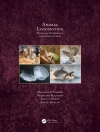This book presents the facet theoretical framework as a tool for facilitating the conception of complex animal behaviour research and the design of research procedures through employing mapping sentences. Using the facet theoretical framework, this book takes a holistic view of bird behaviour. Components of bird behavior are identified and then reassembled to facilitate an understanding of the behaviour in the context of its natural occurrence. This provides new insight on both the parts of the behaviour and how these interact as a whole. The multi-faceted approach to designing, evaluating and understanding bird behavior presented offers a template that is adaptable for investigating a wide variety of avian species and different forms of behaviour.
Behavioural biologists, animal and comparative psychologists, other natural and behavioural scientists, as well as students of these disciplines will find this book to be an interesting and enlightening read.
Table des matières
Preface.- Chapter 1. Studying Birds.- Chapter 2. Mapping Sentences and Facet Theory.- Chapter 3. How to Develop a Mapping Sentence: The Example of Avian Sleep.- Chapter 4. Complex Avian Behaviour and Cognition: A Mapping Sentence Approach.- Chapter 5.- Studying Avian Cognition in the Wild: Avian Psychometrics.- Chapter 6. Interpreting Avian Play, Murmuration of Starlings and Oology (Classifying Birds’ Eggs).- Chapter 7. Conclusion.- Glossary.- Index.
A propos de l’auteur
Professor Paul M.W. Hackett is a psychologist with an interest in structured ontological accounts, from a philosophical and psychological perspective, of both human and non-human animal behaviour. His research has addressed several applied domains including bird behaviour and his writing has appeared in prestigious journals. He has also published a dozen books, including texts on the research methods in psychology. During the time this book was written, Paul was a visiting researcher in the comparative cognition research group at the University of Cambridge. Paul is a visiting professor in health research methods at the University of Suffolk, a visiting professor in the psychology department at Gloucestershire University and an honorary fellow in the philosophy department at Durham University. Paul also teaches ethnography in the School of Communications at Emerson College, Boston and has homes in Wiltshire and Massachusetts.












